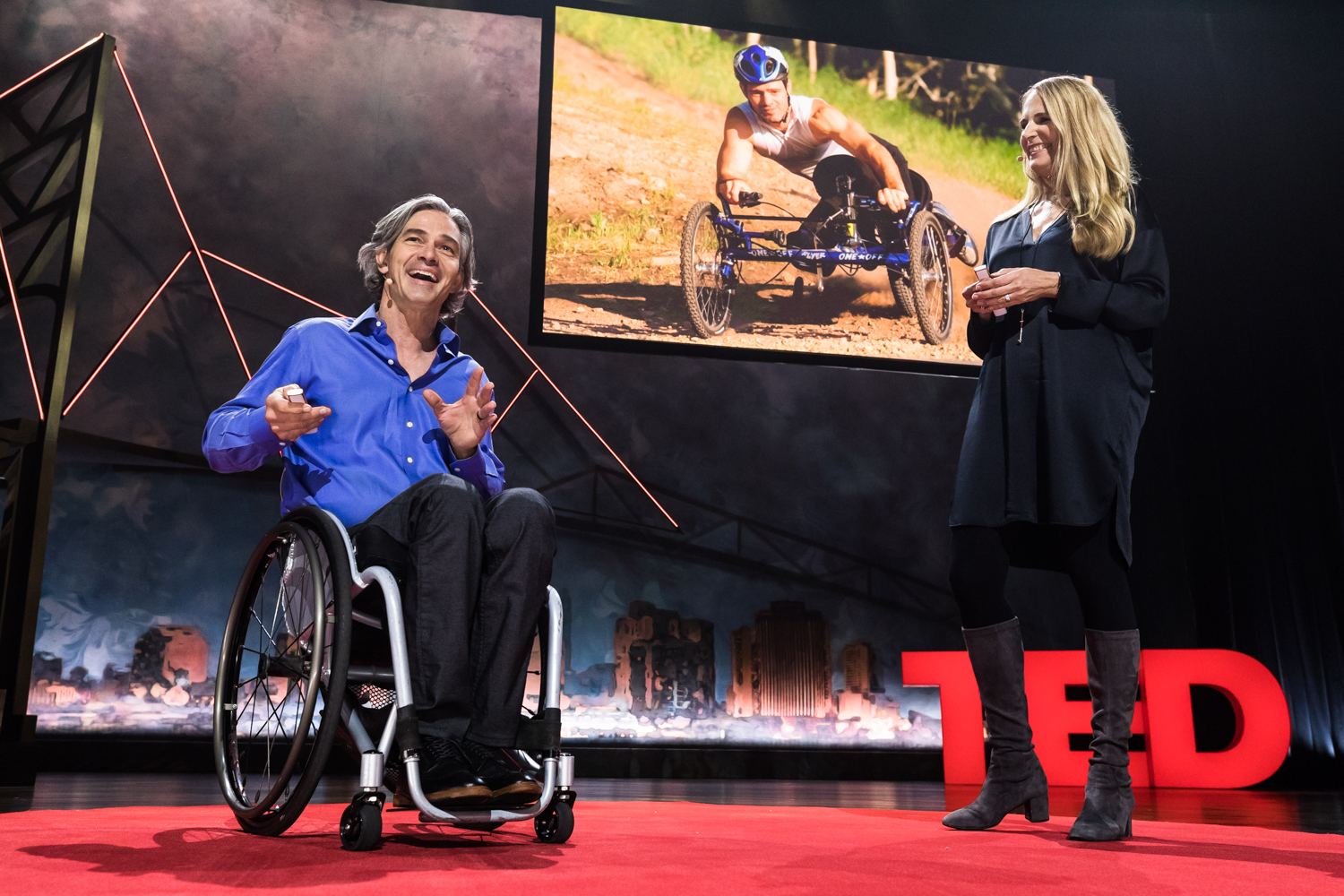
Life partners Chris Waddell and Jean Oelwang are hosts of Session 3, an exploration of partnerships. They kick off the session at TEDWomen 2017 in New Orleans. Photo: Ryan Lash / TED
Our hosts for this session, Jean Oelwang and Chris Waddell, are life partners who’ve both had to overcome their inclination to be a solo superhero — to be the best at business, school, sports. Jean spent her career climbing the corporate ladder, being tough, making her way to the top alone. Meanwhile, Chris was a skiier who, early in his own career, faced what could be a devastating setback when his ski popped off during a turn, leaving him paralyzed from the waist down. He went on to become a world-champion monoskier, setting Paralympic history. He kicks off this session with his story of a quest to summit Mt. Kilimanjaro solo on his handcycle. On the way, he found that, maybe, going solo wasn’t the real goal at all. Building from this story, Session 3 unfolds …
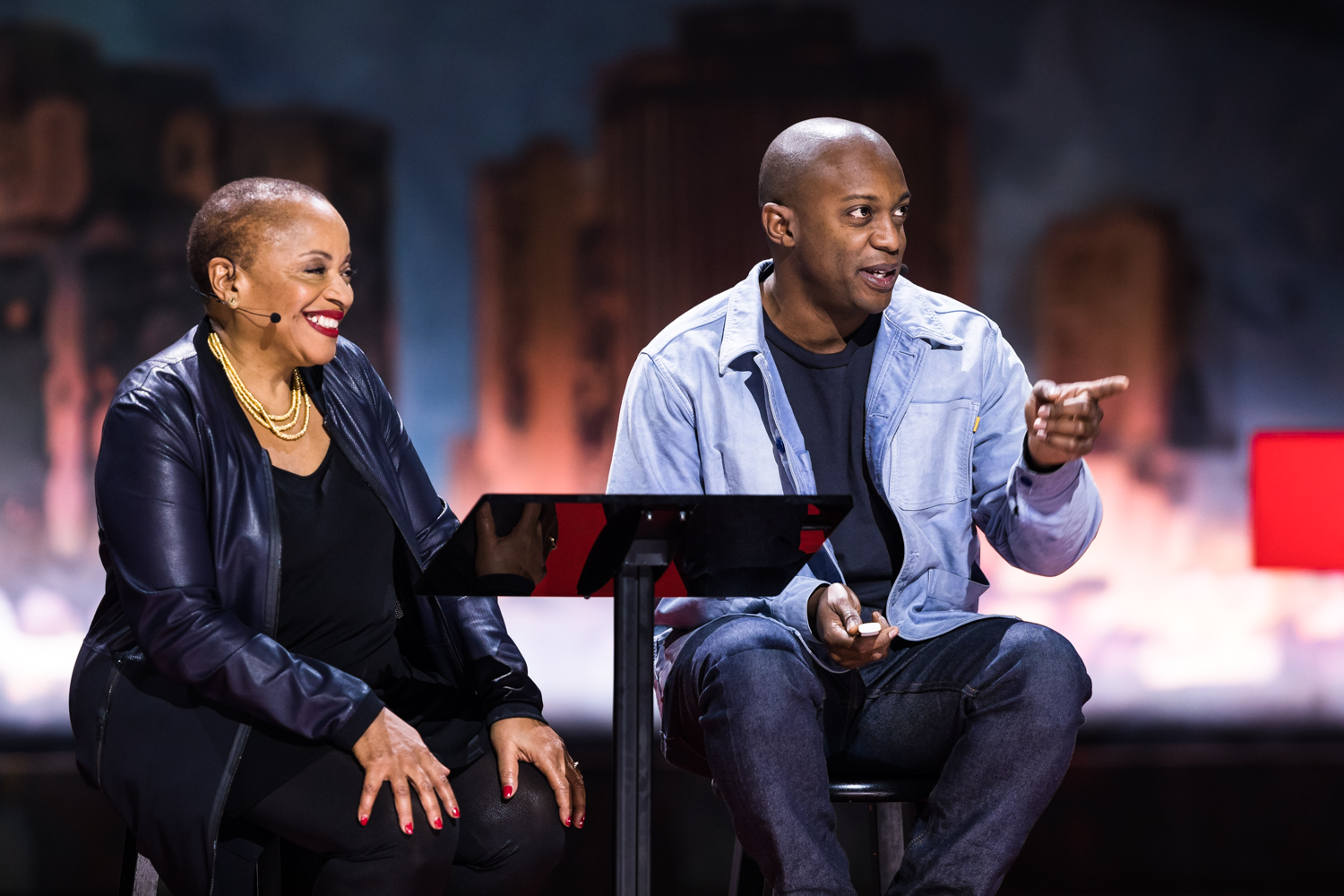
Historian of photography Deborah Willis and artist Hank Willis Thomas, sometime collaborators, always mother and son, speak about their intertwined work and lives at TEDWomen 2017. Photo: Stacie McChesney / TED
Love overrules: Deborah Willis and Hank Willis Thomas are photographers. They are also mother and son. Deborah, told by her photography professor that she was intended for motherhood and not the art world, responded by giving birth to Hank, working the pregnancy into her pictures, and launching into a storied career as a photographer, curator and writer. Growing up in a house full of pictures, Hank also picked up a camera early in life. Their subsequent work has always drawn from what they characterize as a symbiotic relationship defined by abiding love. “Through her actions,” Hanks says of his mother, “she has shown me that love is an action, not a feeling … a way of listening and a way of seeing.” Love–as it relates to family, community, race, identity, notions of truth–has remained a throughline that pierces their efforts to highlight stories that diverge from mainstream narratives about black life. Pondering the reason behind her decision to make photography and love the twin foundations of her professional life, Deborah comes to a conclusion: “Because of the lack of images that circulate in the public about black love and black joy.” Watching this duo onstage provides both.
A textbook for racial literacy. Growing up, Winona Guo and Priya Vulchi thought they understood racism. “We had experienced and heard stories about race, about prejudice, discrimination and stereotyping, and we were like, ‘we get it, racism!’” says Vulchi. “But we weren’t even close,” says Guo. The two friends, then seniors in high school, decided they needed to learn more — so they took a trip to collect hundreds of personal stories about race. Using those stories, Guo and Vulchi highlight the two fundamental gaps they discovered in our racial literacy: the heart gap and the mind gap. One, an inability to understand each of our experiences and be compassionate beyond lip service, and the other, an inability to understand the larger systemic ways racism operates. To bridge those gaps, Guo and Vulchi co-created a textbook, The Classroom Index, that pairs personal stories with statistics. “We need to raise the bar, elevate our standards for racial literacy, because without investing in an education that values both the story and the statistic, the people and the numbers, the interpersonal and the systemic, there will always be a piece missing,” they say.
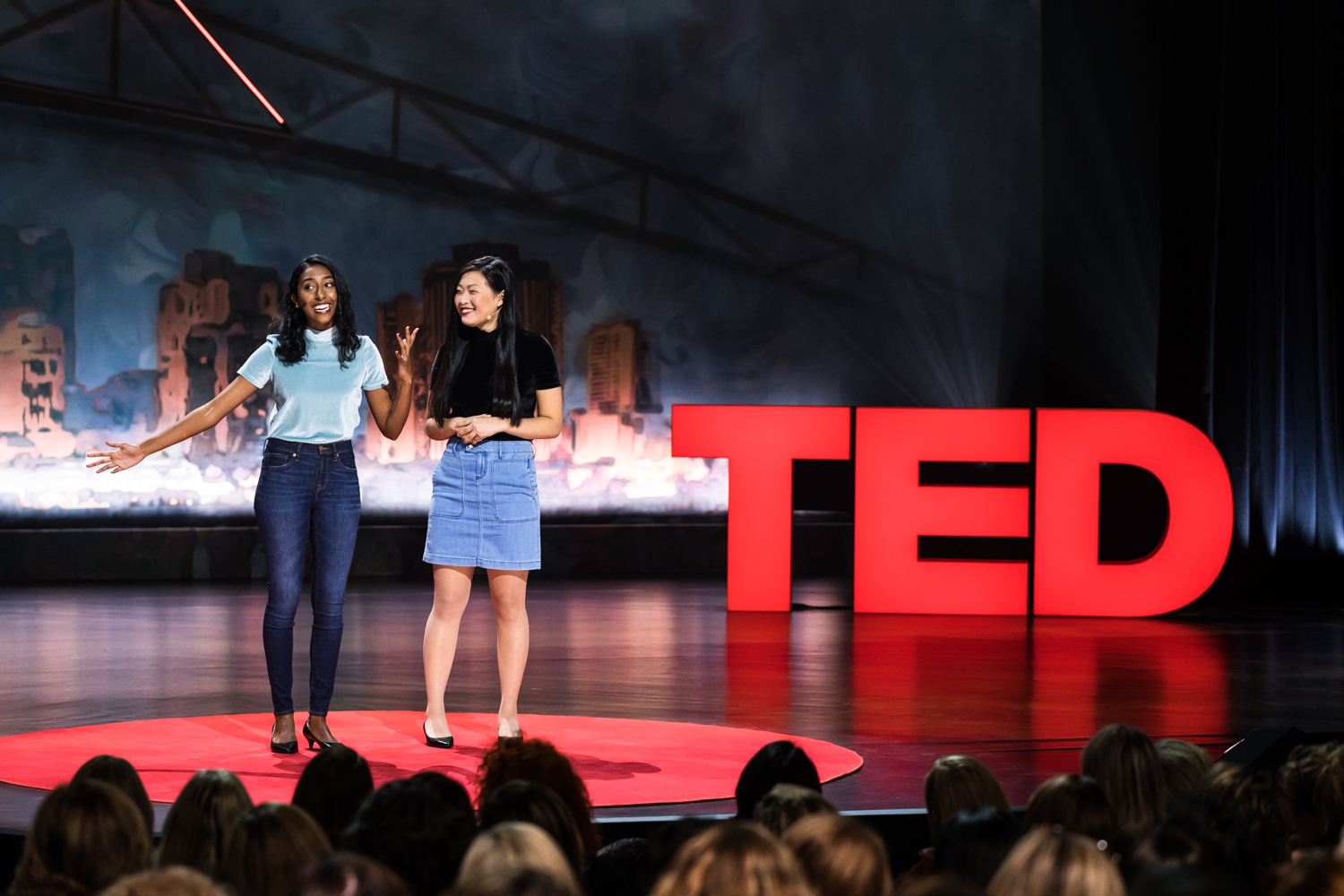
The summer they finished high school, Priya Vulchi and Winona Guo hit the road to explore American attitudes toward racism — and wrote a textbook to help young people like them understand what it really means right now. They speak together at TEDWomen 2017. Photo: Stacie McChesney / TED
The defining moments of our lives. On one awful night, Ples Felix’s grandson, a young teenager, murdered Azim Khamisa’s son, a college student, in a robbery gone wrong, fueled by drugs, alcohol and a false sense of belonging. The deadly encounter of these two young men sent Khamisa and Felix down paths of deep meditation to forgive and to be forgiven — and in act of bravery and reconciliation, the two men met and forged a lasting bond. “Sometimes in deep trauma and deep tragedy, there is a spark,” says Khamisa, in meeting Felix’s grandson, Tony, and connecting with the humanity and humility he witnessed. Together, Khamisa and Felix have used their story as an outline for a better, more merciful society where victims of tragedy can grow with one another and heal — highlighted by the heartfelt news they shared on the TEDWomen stage. As a testament to their enduring relationship and combined efforts to spread the message of peace over the last 12 years, Tony will be released from prison. “Peace is possible,” says Khamisa. “How do I know that? Because I am at peace.”
Sisterhood in three scenes. Felice Belle and Jennifer Murphy, two self-proclaimed sisters in heart and thought, took the TEDWomen stage in a captivating, poetic journey through their friendship. Lives lived apart and together, weaved with laughter and dancing between tragedy and delight, Belle and Murphy lovingly recalled memories and moments that solidified their sisterhood from the day they first became to now. “There are moments that bond,” says Belle. “When there is no train, no car service, no bus, my sister will walk miles just to be by my side.” Together, they recite. “When a sister loves a sister, you listen to her read, thinking: as heaven to the gods is poetry to the beloved.”
Erotic wisdom from the African continent. From our fear of women’s bodies to our sheepishness around the word “nipple,” our ideas about sex need an upgrade, say sex educators (and hilarious women) Tiffany Kagure Mugo and Siphumeze Khundayi. For a radical new take on sex positivity, the duo took to the TED stage to suggest we look no further than the African continent for erotic wisdom both ancient and modern. For instance, before colonization, certain African societies had sexuality schools that taught social and erotic cues; some even maintained spaces where teenagers could explore their sexual urges and how to handle them. The pair also introduces us to an early Yoruba concept known as Osunality, which affirms the normality of sexual pleasure and the erotic, and which teaches women to brandish their sexuality unselfconsciously. Even in the present tense, say Siphumeze and Tiffany, queer African women who practice kink show us how we can shake off the problematic ideas about sex we’ve internalized, and re-define sex and pleasure on our own terms.
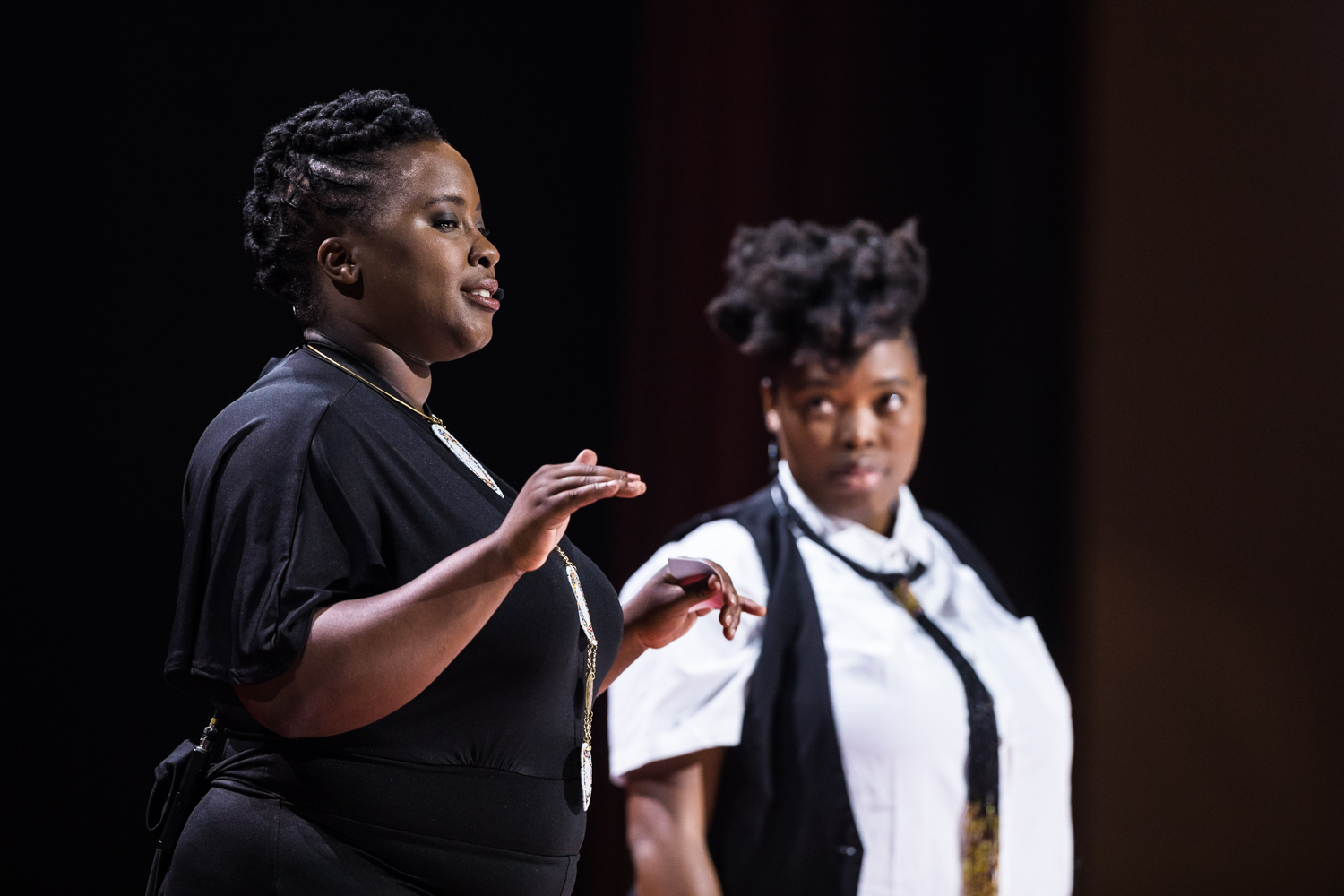
Tiffany Mugo and Siphumeze Khundayi speak to the joy (and occasional comedy) of sex — and ask us to look at some ancient African practices that might help us all get a little better at it. They speak together at TEDWomen 2017. Photo: Stacie McChesney / TED
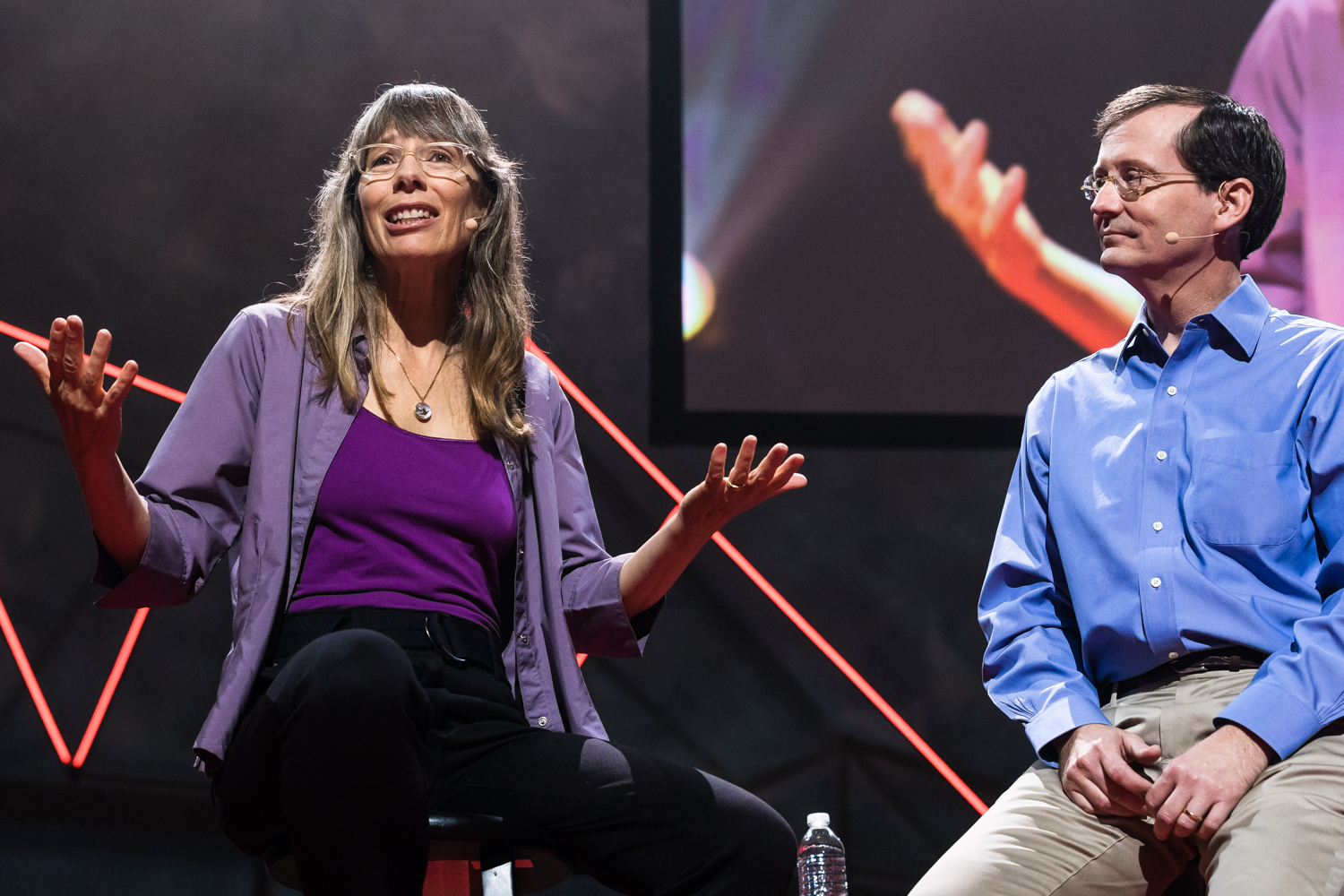
Joan Blades is a lefty; John Gable is … not. But they’re friends, and they can have a conversation about what really matters to them. They speak together at TEDWomen 2017. Photo: Ryan Lash / TED
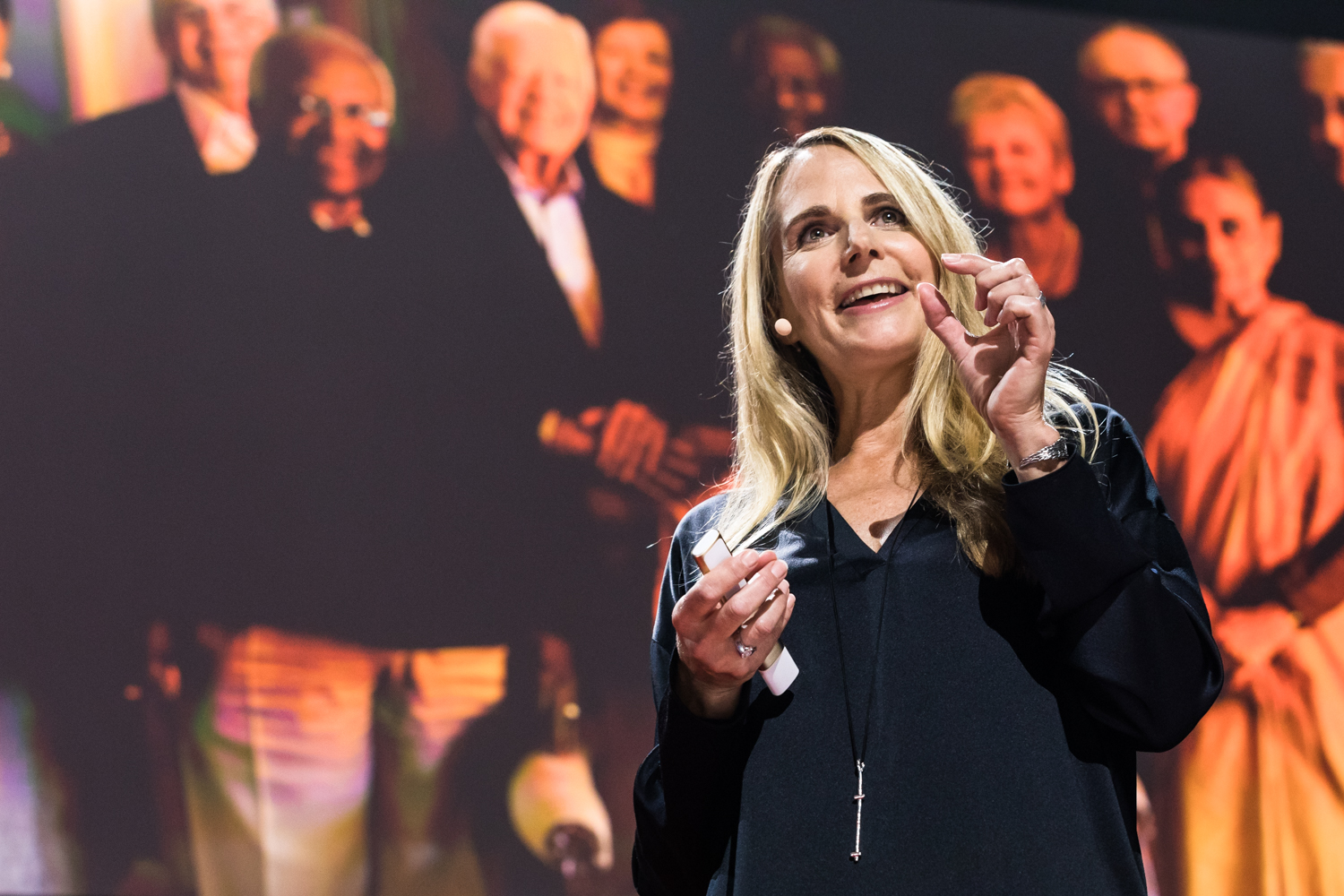
In her work with The Elders, pictured behind her, Jean Oelwang became fascinated by how many great people were paired up with an equally great partner — a friend, a spouse, someone who gave them honest answers and helped them be their best. She speaks at TEDWomen 2017. Photo: Ryan Lash / TED